The most effective alcohol addiction treatment methods combine
FDA-approved medications like injectable naltrexone with digital
cognitive behavioral therapy platforms, giving you up to 50% better recovery outcomes. You'll benefit from
personalized treatment protocols that integrate medication management, behavioral interventions, and continuous clinician monitoring. Evidence shows this
multi-modal approach normalizes brain chemistry while providing essential coping strategies. Understanding these advanced treatment options can drastically impact your path to sustained recovery.
Evidence-Based Behavioral Therapies Leading the Way
While traditional alcohol addiction treatments have long relied on in-person therapy, digital Cognitive Behavioral Therapy (CBT) platforms are revolutionizing recovery outcomes. You'll find these platforms deliver 50% greater improvement in abstinence rates compared to standard care over 8 months. The innovative
CBT4CBT program developed by Yale researchers demonstrates the effectiveness of digital interventions in substance use treatment. A sophisticated
web response system ensures participants are randomly assigned to the most suitable treatment protocol. The study showed
65.6 percent completion rates across all treatment conditions, indicating strong patient engagement. Today's
digital CBT programs integrate
augmented reality relapse prevention tools with thorough treatment modules, letting you work at your own pace through
interactive exercises and skill-building activities.
Data driven outcomes analysis shows users achieve significant gains in both coping strategies and CBT knowledge, outperforming traditional therapy methods. You'll master essential skills through structured thought recording, behavioral planning, and mindfulness techniques. The platforms' ability to provide
continuous clinician monitoring through real-time dashboards guarantees you receive personalized support throughout your recovery path.
Medications Advancing Alcohol Use Disorder Treatment
Today's
FDA-approved medications for
alcohol use disorder include disulfiram, naltrexone, and acamprosate, each targeting different aspects of addiction and recovery. You'll find naltrexone available in both oral and injectable forms, offering flexibility in treatment delivery while reducing alcohol cravings and blocking its pleasurable effects. When you combine these medications with
behavioral therapy, you'll achieve the most effective outcomes, as demonstrated by extensive clinical research showing
improved abstinence rates and reduced heavy drinking days. Disulfiram works by causing unpleasant symptoms when alcohol is consumed, as it leads to an accumulation of
toxic acetaldehyde in the body. These medications have proven particularly beneficial for patients with liver disease, as
recent meta-analyses confirm their safety and effectiveness in reducing alcohol consumption. Despite the proven effectiveness of these treatments,
few patients receive pharmacotherapy for alcohol use disorder treatment.
FDA-Approved Treatment Options
Medical advances in treating Alcohol Use Disorder (AUD) have led to several
FDA-approved medications that target different aspects of alcohol dependence.
Disulfiram, approved in 1949, creates an aversive reaction when combined with alcohol, while
Acamprosate, approved in 2004, helps maintain abstinence by modulating glutamate neurotransmission. Currently, patients with AUD can access
four FDA-approved medications for treatment. When choosing treatment options, you'll need to evaluate
medication adherence strategies and patient preference considerations. Disulfiram requires complete alcohol abstinence, while Acamprosate's three-times-daily dosing demands strict scheduling. Your medical history will influence the selection, for instance, if you have liver dysfunction, Acamprosate might be more suitable as it's cleared by the kidneys. These medications work best when combined with
behavioral therapies and support groups, creating an inclusive treatment approach that addresses both physical and psychological aspects of addiction.
Naltrexone's Dual Delivery Methods
The development of
naltrexone in two distinct delivery methods,
oral tablets and
injectable formulations, has markedly advanced treatment options for Alcohol Use Disorder (AUD). These medications are provided through
secure platforms to ensure patient safety and prevent misuse. You'll find oral naltrexone prescribed at 50 mg daily, showing
moderate effectiveness in reducing drinking behaviors. However, its success heavily depends on
maintaining 85% adherence rates, while daily dosing creates problematic plasma level fluctuations. These fluctuations can trigger side effects and reduce treatment effectiveness. The
clinical efficacy is good to moderate when properly managed. Up to
15% of patients discontinue treatment due to adverse effects, particularly gastrointestinal issues. In contrast, injectable naltrexone (Vivitrol) offers significant adherence advantages through monthly 380 mg intramuscular injections. You'll benefit from
consistent plasma level consistency over four weeks, eliminating the peaks and troughs associated with oral dosing. Research indicates this steady-state delivery may improve clinical outcomes, including longer time to relapse and fewer drinks per drinking day compared to oral administration.
Combining Medications With Therapy
Modern treatment protocols for alcohol use disorder consistently demonstrate that combining medications with behavioral therapy yields superior outcomes compared to single-modality approaches. Multi-modal approaches improve patient engagement and support long-term recovery through complementary mechanisms. With over
28.3 million Americans affected by alcohol use disorder, the need for effective combined treatment approaches is critical.
| Treatment Component |
Key Benefits |
| Primary Medications |
Reduces cravings, maintains abstinence |
| Behavioral Therapy |
Addresses psychological dependencies |
| Combined Approach |
Optimizes treatment retention |
You'll find that primary medications like naltrexone and acamprosate work best when integrated with cognitive behavioral interventions. Clinical research shows that
combination therapy provides enhanced early benefits in treatment outcomes. While medications help normalize brain chemistry and reduce cravings, therapy provides essential coping strategies. Recent studies show that
supervised administration of medications like disulfiram can significantly improve treatment success rates. The American Psychiatric Association endorses this integrated approach, particularly recommending cognitive behavioral therapy alongside pharmacological interventions. When you're considering treatment options, it's important to note that evidence consistently shows higher success rates with combination protocols versus standalone treatments.
The Power of Mutual-Support Networks
Substantial research demonstrates that
mutual-support networks play a pivotal role in alcohol addiction recovery, with participants showing a
35% lower risk of relapse compared to those receiving treatment alone. Through
peer group facilitation, you'll gain practical coping strategies and social accountability while building connections with others who understand your expedition. These groups provide a platform to
challenge negative thoughts and develop healthier ways of thinking. PHI researcher Dr. Sarah Zemore has shown that
different support groups can offer unique benefits for individuals based on their specific needs and circumstances. Today's
online engagement models have expanded access to these crucial support networks, offering both virtual and in-person options that fit your schedule and comfort level. Whether you choose AA, SMART Recovery, LifeRing, or Women for Sobriety, you'll find equivalent effectiveness across these programs. Your success rates improve tremendously when you maintain
consistent attendance and active participation. When combined with professional treatment, these free, accessible support networks provide the ongoing care and community essential for
long-term recovery success.
Personalized Treatment Plans: A Tailored Approach
Modern addiction treatment begins with
thorough assessments that evaluate your
unique characteristics, including genetic predisposition, drinking motivations, and mental health history. Your personal profile helps clinicians select the most effective interventions, from medication choices to therapy modalities, ensuring treatments align with your specific needs and circumstances. You'll receive carefully matched interventions based on
evidence-based predictive models that consider multiple factors, including severity of alcohol use, treatment preferences, and
co-occurring conditions.
Assessment Drives Treatment Selection
Thorough assessment forms the cornerstone of
effective alcohol addiction treatment, driving the development of personalized intervention strategies.
Evidence-based assessment techniques combine clinical interviews, diagnostic tools, and biological markers to create
individualized treatment approaches that match your specific needs. Key components that guide your treatment selection include:
- Comprehensive evaluation of substance use patterns, medical history, and co-occurring mental health conditions using validated screening tools
- Analysis of genetic factors and biomarkers to determine ideal medication choices and therapy protocols
- Appraisal of your social circumstances, family dynamics, and environmental stressors that impact recovery
- Continuous progress monitoring through telehealth platforms and digital tools to adapt interventions based on your response
This
systematic approach guarantees you'll receive precisely targeted care that evolves with your recovery trek.
Matching Interventions to Needs
Effective alcohol addiction treatment relies on carefully matching interventions to each person's unique circumstances and needs. You'll receive
personalized care through
precision-crafted medication strategies, with
genetic testing and AI helping determine whether medications like acamprosate or naltrexone will work best for you. This approach focuses on enhancing patient engagement while optimizing care coordination across your treatment team. Your individualized plan will integrate
therapeutic interventions like CBT, contingency management, and motivational interviewing, adapted to your specific triggers and readiness for change.
Technology-enabled solutions, including telehealth and recovery apps, provide flexible access to support. Your treatment considers critical factors like cultural background, socioeconomic status, and co-occurring conditions, ensuring an
inclusive approach. Through
continuous monitoring and assessment, your care team will adjust interventions to enhance your recovery outcomes.
Medical Detoxification and Withdrawal Management
Clinical management of alcohol withdrawal requires
thorough medical supervision and targeted pharmaceutical interventions to safeguard patient safety. During detox, you'll receive comprehensive care that includes
crucial sign monitoring and
medication-assisted treatment to minimize withdrawal risks and discomfort.
Medical oversight and proper medication are essential safeguards during alcohol withdrawal, ensuring patient wellbeing throughout the detox process.
- Your detox journey begins 6-12 hours after your last drink, with medical staff closely tracking your symptoms
- You'll receive FDA-approved medications like benzodiazepines to manage symptoms and prevent seizures
- Medical professionals will monitor you continuously through the critical 48-72 hour period
- Your care team will implement ongoing follow-up and relapse prevention strategies, including nutritional support and counseling
The process typically occurs in a controlled environment where you'll have
immediate access to emergency care if needed. This
medical oversight ensures your withdrawal is managed safely while preparing you for
long-term recovery.
Digital Health Solutions and Telehealth Breakthroughs
Recent innovations in
digital health technology have revolutionized alcohol addiction treatment, offering unprecedented access to care through
telehealth platforms and
virtual support tools. You'll find extensive treatment options through virtual therapy sessions, which eliminate geographical barriers and stigma while increasing engagement and adherence to recovery programs. Digital technology adoption has expanded to include
AI-powered mobile apps that track cravings and connect you with 24/7 support networks.
Virtual reality integration allows you to practice coping skills in controlled environments, strengthening your ability to manage real-world triggers.
Wearable devices monitor important biomarkers, enabling early intervention and continuous progress tracking. These technological advancements, combined with traditional treatment methods, create a more accessible, personalized, and effective approach to alcohol addiction recovery.
Genetic Testing and Biomarker Innovations
Three groundbreaking advances in
genetic testing and biomarker research have
transformed the terrain of alcohol addiction treatment. The CARES system now offers unprecedented
preventative intervention opportunities through
exhaustive genetic analysis and personal history evaluation. Key developments you'll find in genetic testing for alcohol addiction treatment:
- Saliva-based genetic screening at $149 identifies high-risk profiles with results in six weeks, enabling early intervention strategies
- Large-scale genomic studies reveal shared markers across addiction disorders, illuminating neurodevelopmental addiction mechanisms
- Gene therapy trials show 90% reduction in alcohol consumption through targeted dopamine regulation
- Biomarker monitoring through blood and saliva tests provides objective tracking of treatment progress
These advances signal a shift from standardized approaches to personalized treatment strategies based on your unique genetic profile and environmental factors.
Integrated Care Models for Complex Cases
While
genetic testing advances offer valuable insights into addiction risk factors,
integrated care models have emerged as the
gold standard for treating complex alcohol use disorders. These coordinated treatment teams deliver simultaneous
mental health and
substance use interventions through trained specialists who work collaboratively across disciplines. You'll receive stage-appropriate care through holistic recovery approaches that combine medical, psychiatric, and addiction services. This comprehensive model includes
trauma-informed therapies,
family involvement, and community support systems. Evidence shows that when providers work together, they're more effective at identifying and treating alcohol addiction while reducing stigma. Quality improvement frameworks guarantee sustainable implementation, while ongoing assessment helps maintain program effectiveness. You'll benefit from customized care levels that match your specific needs, supported by peer groups and family education programs.
Social Support and Environmental Interventions
Social support networks and
environmental interventions consistently prove essential for
successful alcohol addiction recovery. You'll find that structured support systems extensively improve your chances of maintaining sobriety through multiple
evidence-based channels.
- Active participation in mutual support groups like AA, SMART Recovery, or LifeRing provides peer accountability and encouragement, matching the effectiveness of formal therapy.
- Peer-delivered recovery support services augment treatment engagement while reducing relapse rates through coaching and employment assistance.
- Caregiving resources, including web-based family support programs, offer anonymous help for those supporting loved ones through recovery.
- Sober living environments within recovery housing demonstrate superior outcomes, featuring structured routines and peer support that reinforce abstinence behaviors.
These interventions work together to create a comprehensive support system that strengthens your recovery path while promoting lasting sobriety.
Frequently Asked Questions
How Much Does Comprehensive Alcohol Addiction Treatment Typically Cost?
You'll typically spend around $13,475 for an
extensive treatment episode. Monthly costs vary greatly based on your chosen program:
outpatient care averages $5,700, while
inpatient treatment ranges from $6,000 to $30,000 for a 30-day program. Treatment duration greatly impacts total expenses; extended residential stays (60-90+ days) can cost $20,000-$60,000+. With private insurance, you'll usually cover about 40% of these costs out-of-pocket.
What Percentage of People Successfully Maintain Long-Term Sobriety After Treatment?
You'll find that
long-term sobriety success rates vary considerably over time. While less than 20% maintain abstinence for the initial year, your chances improve to 47% within three years post-treatment.
Alcohol addiction relapse rates are highest in the first year at 30%, but they decrease substantially over time. If you reach five years of sobriety, your risk of relapse drops to just 7.2%.
Managing triggers for alcohol cravings through ongoing support and treatment completion greatly improves your odds.
Can I Continue Working While Receiving Alcohol Addiction Treatment?
Yes, you can continue working while receiving treatment. Many programs offer flexible scheduling to accommodate your
part-time employment or full-time career. Outpatient programs, counseling sessions, and support group meetings can be arranged around your work hours. You'll need to make lifestyle adjustments and may require
FMLA leave for intensive phases of treatment, but legal protections safeguard your job security. Your employer must provide
reasonable accommodations to support your recovery path.
How Long Does Complete Alcohol Addiction Recovery Usually Take?
Complete alcohol recovery typically takes
several years, with significant treatment duration variability among individuals. You'll face your highest relapse risk in the
initial six months, but your chances of sustained sobriety improve dramatically after
five years of abstinence. Long-term relapse prevention requires ongoing commitment, as most people need about 22 years from initial problematic use to achieve stable recovery. You'll experience major health improvements after your primary year of sobriety.
What Role Does Nutrition Play in Alcohol Addiction Recovery?
Nutrition plays a crucial role in your recovery from alcohol addiction. You'll need
dietary supplements to address deficiencies caused by
chronic alcohol use, particularly B vitamins, magnesium, and zinc. Through nutritional counseling, you'll learn to
stabilize blood sugar levels, which helps reduce cravings and withdrawal symptoms. Proper nutrition also supports brain repair, bolsters mental clarity, and fortifies your immune system. These nutritional interventions greatly enhance your chances of maintaining
long-term sobriety.
 While traditional alcohol addiction treatments have long relied on in-person therapy, digital Cognitive Behavioral Therapy (CBT) platforms are revolutionizing recovery outcomes. You'll find these platforms deliver 50% greater improvement in abstinence rates compared to standard care over 8 months. The innovative CBT4CBT program developed by Yale researchers demonstrates the effectiveness of digital interventions in substance use treatment. A sophisticated web response system ensures participants are randomly assigned to the most suitable treatment protocol. The study showed 65.6 percent completion rates across all treatment conditions, indicating strong patient engagement. Today's digital CBT programs integrate augmented reality relapse prevention tools with thorough treatment modules, letting you work at your own pace through interactive exercises and skill-building activities. Data driven outcomes analysis shows users achieve significant gains in both coping strategies and CBT knowledge, outperforming traditional therapy methods. You'll master essential skills through structured thought recording, behavioral planning, and mindfulness techniques. The platforms' ability to provide continuous clinician monitoring through real-time dashboards guarantees you receive personalized support throughout your recovery path.
While traditional alcohol addiction treatments have long relied on in-person therapy, digital Cognitive Behavioral Therapy (CBT) platforms are revolutionizing recovery outcomes. You'll find these platforms deliver 50% greater improvement in abstinence rates compared to standard care over 8 months. The innovative CBT4CBT program developed by Yale researchers demonstrates the effectiveness of digital interventions in substance use treatment. A sophisticated web response system ensures participants are randomly assigned to the most suitable treatment protocol. The study showed 65.6 percent completion rates across all treatment conditions, indicating strong patient engagement. Today's digital CBT programs integrate augmented reality relapse prevention tools with thorough treatment modules, letting you work at your own pace through interactive exercises and skill-building activities. Data driven outcomes analysis shows users achieve significant gains in both coping strategies and CBT knowledge, outperforming traditional therapy methods. You'll master essential skills through structured thought recording, behavioral planning, and mindfulness techniques. The platforms' ability to provide continuous clinician monitoring through real-time dashboards guarantees you receive personalized support throughout your recovery path.
 Modern addiction treatment begins with thorough assessments that evaluate your unique characteristics, including genetic predisposition, drinking motivations, and mental health history. Your personal profile helps clinicians select the most effective interventions, from medication choices to therapy modalities, ensuring treatments align with your specific needs and circumstances. You'll receive carefully matched interventions based on evidence-based predictive models that consider multiple factors, including severity of alcohol use, treatment preferences, and co-occurring conditions.
Modern addiction treatment begins with thorough assessments that evaluate your unique characteristics, including genetic predisposition, drinking motivations, and mental health history. Your personal profile helps clinicians select the most effective interventions, from medication choices to therapy modalities, ensuring treatments align with your specific needs and circumstances. You'll receive carefully matched interventions based on evidence-based predictive models that consider multiple factors, including severity of alcohol use, treatment preferences, and co-occurring conditions.
 Recent innovations in digital health technology have revolutionized alcohol addiction treatment, offering unprecedented access to care through telehealth platforms and virtual support tools. You'll find extensive treatment options through virtual therapy sessions, which eliminate geographical barriers and stigma while increasing engagement and adherence to recovery programs. Digital technology adoption has expanded to include AI-powered mobile apps that track cravings and connect you with 24/7 support networks. Virtual reality integration allows you to practice coping skills in controlled environments, strengthening your ability to manage real-world triggers. Wearable devices monitor important biomarkers, enabling early intervention and continuous progress tracking. These technological advancements, combined with traditional treatment methods, create a more accessible, personalized, and effective approach to alcohol addiction recovery.
Recent innovations in digital health technology have revolutionized alcohol addiction treatment, offering unprecedented access to care through telehealth platforms and virtual support tools. You'll find extensive treatment options through virtual therapy sessions, which eliminate geographical barriers and stigma while increasing engagement and adherence to recovery programs. Digital technology adoption has expanded to include AI-powered mobile apps that track cravings and connect you with 24/7 support networks. Virtual reality integration allows you to practice coping skills in controlled environments, strengthening your ability to manage real-world triggers. Wearable devices monitor important biomarkers, enabling early intervention and continuous progress tracking. These technological advancements, combined with traditional treatment methods, create a more accessible, personalized, and effective approach to alcohol addiction recovery.









